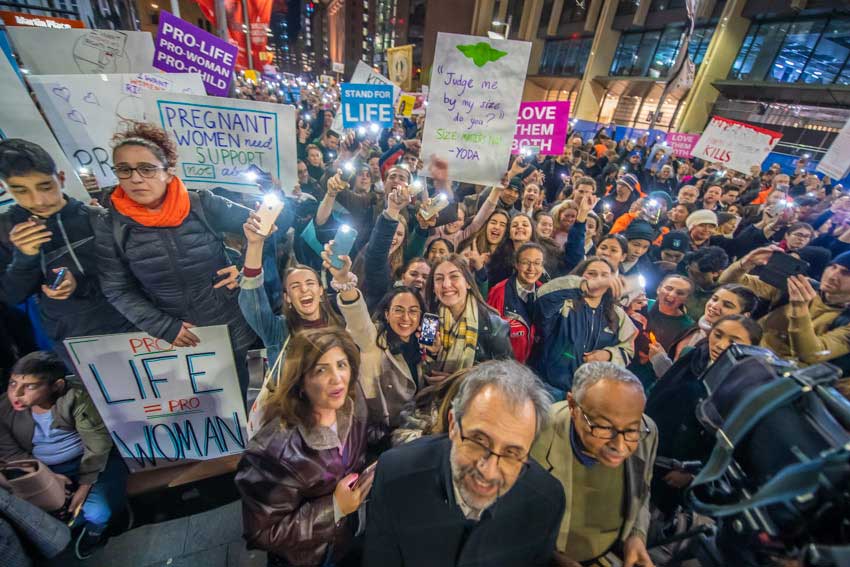
“Dear Father, I am disturbed by the fact that some Catholic politicians have voted for the legalisation of abortion in this country. For me, this is a great scandal. Could or should they be excommunicated for doing this?”
We can begin by looking at what the Church teaches regarding the denial of Holy Communion in certain circumstances. Canon 915 of the Code of Canon Law reads: “Those … who obstinately persist in manifest grave sin, are not to be admitted to Holy Communion.”
Can it be said that a person who publicly expresses support for the legalisation of abortion and who votes for such legislation is obstinately persisting in manifest grave sin? There would seem to be no doubt that this is the case.
The Church has repeatedly taught that abortion is a grave sin. For example, the Catechism of the Catholic Church teaches: “Since the first century the Church has affirmed the moral evil of every procured abortion. This teaching has not changed and remains unchangeable Direct abortion, that is to say, abortion willed either as an end or a means, is gravely contrary to the moral law” (CCC 2271).
Therefore, to deny publicly, to contradict openly a teaching as clear and fundamental as this is clearly a grave sin.
It can be argued that someone who has not been taught the faith properly and does not understand the Church’s clear position on this issue might not be guilty before God of a formal sin.
But at the same time, since abortion is manifestly the ending of the life of an innocent human being in the womb of its mother, it should be clear to everyone that this practice is gravely contrary to the natural law.
And at this stage of history virtually everyone, non-Catholics included, knows where the Catholic Church stands on the issue. It is therefore a scandal for a Catholic politician to support the legalisation of abortion and to vote for it.
Moreover, to deny a fundamental teaching like that on abortion is really to fall into the sin of heresy, defined in the Catechism as “the obstinate post-baptismal denial of some truth which must be believed with divine and Catholic faith” (CCC 2089; Can. 751). The word “obstinate” is important.

There may be Catholics who simply do not know what the Church teaches on a particular issue and who, once informed, accept the teaching. They are not heretics. But if someone has been warned that what they are advocating is contrary to Church teaching and they obstinately persist in their belief, they are guilty of heresy.
What is more, someone who persists in heresy automatically incurs a latae sententiae excommunication; that is, the person is excommunicated by the law itself (cf. Can. 1364).
Since it is often not clear exactly who is guilty of heresy and is therefore excommunicated, the local bishop, after an investigation, may choose to declare publicly that the person is excommunicated.
So, in answer to your question, politicians who are known to be Catholics and who vote for legislation like the legalisation of abortion may be excommunicated. Whether the local bishop considers this to be the best way to proceed, however, is another matter.
One approach he may take, after speaking personally with the politician and warning him or her of the scandal they are causing, is to ask the person not to present himself or herself for Communion in any Masses they attend in his diocese.
This is not the same as excommunication, which prevents the person from receiving any sacrament in the Church until such time as the person repents and has been absolved of the excommunication.
This approach was taken, for example, in 2008 by Archbishop Joseph Naumann of Kansas City against Kathleen Sebelius, Governor of Kansas, who had vetoed a bill passed by both houses of the state legislature greatly restricting access to abortion.
After speaking personally several times with Governor Sebelius about her action, the Archbishop asked Sebelius not to present herself for Holy Communion until such time as she amended her life and publicly repudiated her previous actions. Other American Archbishops who have done this include John Myers and Raymond Burke.
In many cases this may be the best pastoral approach to a difficult problem. If the politician is not normally attending Mass and receiving Communion anyway, it still stands as a warning and a clarification to the faithful of the diocese.
Related articles:
